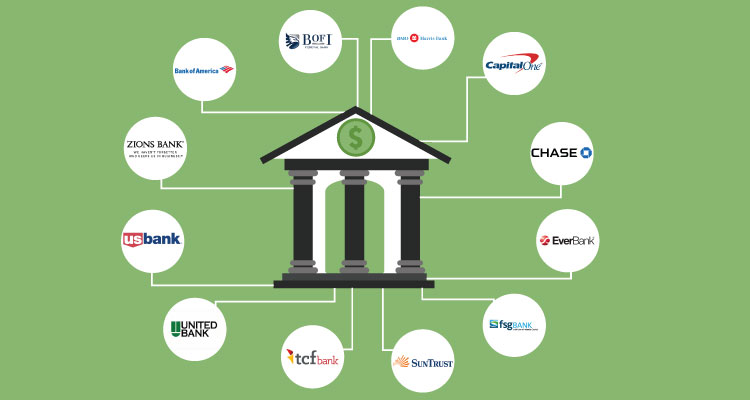A Mortgage Money Circulation Commitment (MCFO) is a kind of home loan pass-through unsecured general responsibility bond that has several classes or tranches. MCFOs use capital from a pool of mortgages that generate income to repay investors their principal plus interest. Payments are received from mortgages in the swimming pool and handed down to holders of the MCFO security.
MCFOs do not hold a lien on the mortgages held by the security. They are simply obligated by agreement to utilize the earnings from the home loans to pay their investors. MCFO owners have no legal rights to the actual underlying home loans, therefore MCFOs are riskier than CMOs. Like CMOs, MCFOs are a type of mortgage-backed security created through the securitization of specific property home mortgages that draw interest and primary payments from that particular pool of home mortgages.
Like CMOs, MCFOs package home mortgages into groups with different payment attributes and run the risk of profiles called tranches. The tranches are repaid with home loan principal and interest payments in a specified order, with the highest ranked tranches coming with credit improvement, which is a kind of security versus prepayment threat and payment default.
The stated maturities of MCFO tranches are figured out based upon the date when the last principal from a swimming pool of home mortgages is expected to be settled. However maturity dates for these types of MBS do not consider prepayments of the underlying home loan and therefore might not be a precise representation of MBS threats.
CMOs, MCFOs and other non-agency mortgage-backed securities those home mortgage bonds not backed by the government-sponsored business Fannie Mae, Freddie Mac or Ginnie Mae - were at the center of the monetary crisis that led to the personal bankruptcy of Lehman Brothers in 2008 and led to trillions of dollars in losses on mortgage loans and countless property owners losing their houses to default.
In December 2016, the SEC and FINRA announced brand-new guidelines to moisten MBS risk with margin requirements for CMO and associated MBS deals.

Getting The Which Australian Banks Lend To Expats For Mortgages To Work
A home loan swimming pool is a group of home mortgages held in trust as security for the issuance of a mortgage-backed security. Some mortgage-backed securities released by Fannie Mae, Freddie Mac, and Ginnie Mae are referred to as "pools" themselves. These are the simplest form of mortgage-backed security. They are also called "pass-throughs" and sell the to-be-announced (TBA) forward market.
Home loan pools, which are groups of mortgages, tend to have similar qualities, such as issuance date, maturity date, and so on. While mortgage-backed securities are backed by home loan collateral with comparable attributes, collateralized debt responsibilities are backed by security with differing qualities. An essential benefit of home loan swimming pools is that they provide financiers with diversity.
Home loan swimming pools are made up of home mortgages that tend to have similar characteristicsfor instance, they will generally have near the same maturity date and rate of interest. As soon as a lender finishes a home mortgage transaction, it typically offers the mortgage to another entity, such as Fannie Mae or Freddie Mac. Those entities then package the home loans together into a home loan swimming pool and the home loan pool then serves as collateral for a mortgage-backed security.
A CDO is a structured monetary product that pools together cash flow-generating properties and repackages this possession pool into discrete tranches that can be offered to financiers. A collateralized debt responsibility is called for the pooled assetssuch as mortgages, bonds and loansthat are basically debt commitments that Browse this site act as collateral for the CDO.
Mortgage swimming pool funds benefit financiers looking for genuine estate direct exposure due to the fact that they are a low-risk investment that moves independently of a stock and bonds Informative post and use a predictable regular monthly earnings. Home loan pool fund loans are protected by property and are referred to as hard cash since unlike most bank loans (which rely on the credit reliability of the borrower), difficult money loans think about the value of the underlying home.
Because of their shorter terms, difficult money loans are less vulnerable to being impacted by interest rate swings, which suggests it is a more predictable and trustworthy capital. Like discussed above, mortgage swimming pool funds differ, where some focus on specific property types, while some are more general. These distinction can affect risk and return, so it is very important to investigate the different mortgage pools prior to diving in.
Little Known Questions About How Do Balloon Fixed Rate Mortgages Work?.
There's nothing much better than marching your back entrance on a hot summer season day and leaping in your own swimming pool. However beware when aiming to purchase or re-finance a home with a swimming pool. That swimming pool can trigger hold-ups in the home loan process, or drown your loan application entirely.

Stubrud worked with a client who wanted a reverse mortgage, however had an empty, aging swimming pool on the residential or commercial property. Reverse mortgages follow FHA guidelines, which are particular about pool. "They don't want it to be a health risk or a security hazard that there's a huge open hole in the ground." So what did the customer do? "How they handled it was that they filled it in," states Stubrud.
The pool stopped to exist. There were no other alternatives for this aging house owner who didn't have the money to get the swimming pool in working order. But Stubrud says the customer did bring up an alternative idea. "They really wished to keep it and they were going have this subterranean greenhouse.
Lots of homeowners believe that what's on your home is your company. While that's partially true, you invite analysis to practically every inch of a home when you decide to fund it with the lending institution's money. It's true for FHA loans as well as any other loan type. It boils down to safety.
A pool that is a falling danger or is a breeding place for bacteria is a risk to the health of the residents. Not to mention it opens the homeowner approximately lawsuits (how much is mortgage tax in nyc for mortgages over 500000:oo). The same standards would apply to things like a missing stairs outside the back entrance, missing out on handrails, or exposed lead-based paint.
Repairing the swimming pool to get it into working order will allow the loan procedure to continue. When buying a home, this might be a predicament. It's risky to utilize your own funds to make repairs on a house that's not yours yet particularly pool repair work which can range from a few hundred to a couple of thousand dollars - find out how many mortgages are on a property.
Getting The How Many Va Mortgages Can You Have To Work
There may be another way to make repair work, nevertheless. "The debtor will need to obtain a quote for the necessary repair work," says Sarah Bohan, VP of Corporate Relations at MSU Federal Credit Union. "If the repairs are arranged to happen after the closing, the loan provider will generally request to hold 1.
You get back any money left over after everything's done. However don't depend on this service, says Bohan. "Numerous loan providers are unable to permit for repairs after the home loan closes because they offer their loans on the secondary market and require to deliver the loan within a set timeframe." Make certain your loan provider permits repairs after closing prior to you consent to buy a house with a shabby pool.